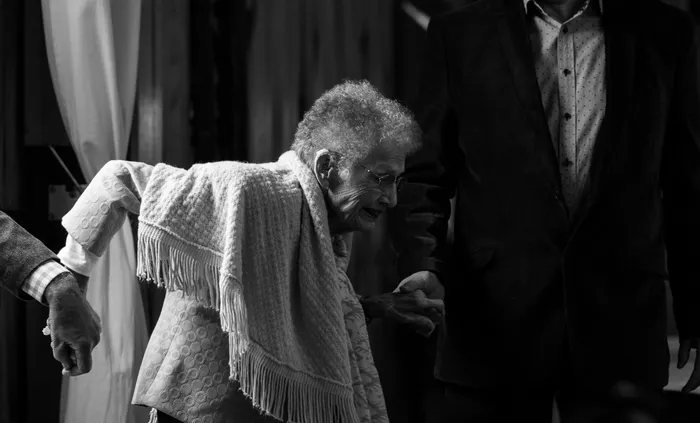
The band may have packed up and the ballrooms may be silent, but for those who once danced with joy and abandon, the rhythm still lingers — in their steps, their smiles, their stories.
Image: Alex Boyd / Unsplash / File
IT HAPPENED suddenly one day. There I was, driving my car listening to an Oldies radio station, when one of my all-time favourite bands’ songs started playing.
“Hold the line … Love isn't always on time,” Toto’s Bobby Kimball sang. And I chuckled, “Fools! Who set up this app? How can a Toto tune be a ‘Golden Oldie'?’”
Then, as Kimball continued belting out the lyrics, I did some calculations, and suddenly felt the urge to pull over and weep when it occurred to me that the album with that song on its playlist was released in 1978 … that’s almost 50 years ago – that qualifies for the Golden Oldie label.
I remembered how, when my parents wanted to listen to their music, “teenage-your’s-truly” would want to barf, nauseated by the ancient, boring, dull tunes. I must confess, when I listen to their old, dull music these days, it doesn’t sound that bad at all. Maybe their music wasn’t all that bad. Maybe it was I who needed refining. Could it be true what Frank Lloyd Wright suggested when he said, “The longer I live, the more beautiful life becomes.”
I tested this theory just this past week, when I logged onto a popular streaming site and – lo and behold – found albums by The Meteors and Jimmy’s Grand Six.
For those who don’t know them, these were the bands of our community’s dance scene, playing “Langarm” music that thrilled the adults at every wedding, birthday, and ball. As a teen, I loathed it – thought it was slow, boring, and hopelessly uncool.
But listening to it again now, something stirred. I remembered the parties, the swirling dancers, the elegance of people I once dismissed as “old” – aunts, uncles, neighbours, teachers – suddenly transformed into graceful performers.
Of course, when you're young, anyone over 30 seems ancient. But watching those couples move to the music, caught up in the moment, I now realise they didn’t care what we thought – and maybe that’s the key.
Ann Landers said it best: “At age 20, we worry about what others think of us. At age 40, we don’t care what they think of us. At age 60, we discover they haven’t been thinking of us at all.”
Then, after that jolt of nostalgia when I heard the songs of those dance bands, it occurred to me why it made such an impact. I realised that we don’t hear that music any more. Gone seem to be the days of Grand Balls and Dinner Dances, and – this is the heartbreaking realisation – ever dwindling are the ranks of those who used to enjoy and dance to that music.
To add fuel to this emotional fire, a picture came up on my social media feed recently. The picture shows Belarusian WWII veteran Konstantin Pronin at the 2011 Victory Day parade in Moscow. According to the story, Pronin attended every parade since the end of World War II, but that particular year, none of his comrades turned up. In the photograph, he sits alone on a bright yellow bench, in full uniform, decorated with medals, with a distant look on his face.
Part of the caption reads: “A lifetime of memories, courage, and sacrifice etched into his face, and the quiet heartbreak of being the last one standing. He is not just a survivor of war but now the lone keeper of stories that only he remembers.”
There is something special, something irreplaceably precious about being able to share experiences with friends who were there with you when things happened. Years, even decades later, people can still laugh about and talk about their experiences, and if one of the crew forgets a detail, there’s the joy of having friends who can fill in the blanks and blind spots from their perspectives.
What happens when all your friends are gone, however? When you are the last one of the once-happy and cool crew? With whom do you speak about your “best” times?
My brother might not have a solution to this ache, but he has a kind of plaster. He loves chatting to older people – those of the Silent Generation and the Boomers. And when they talk, he says, their eyes light up. They speak of feats of strength, the resilience it took to get through hard times, and the dreams they chased – those fulfilled, and those that faded.
Whatever the topic, for a few minutes, they’re free to share what mattered. And that, I think, is something truly special.
Maybe staying young isn’t about clinging to the past, but sharing it – with someone who still wants to listen. And if no one listens? Then sing the old tunes anyway. Hum them. Remember the good times. If no one gets it, that’s their loss.
Because as long as someone is hearing it, or even telling it, the story – and the spirit – lives on.
Related Topics: